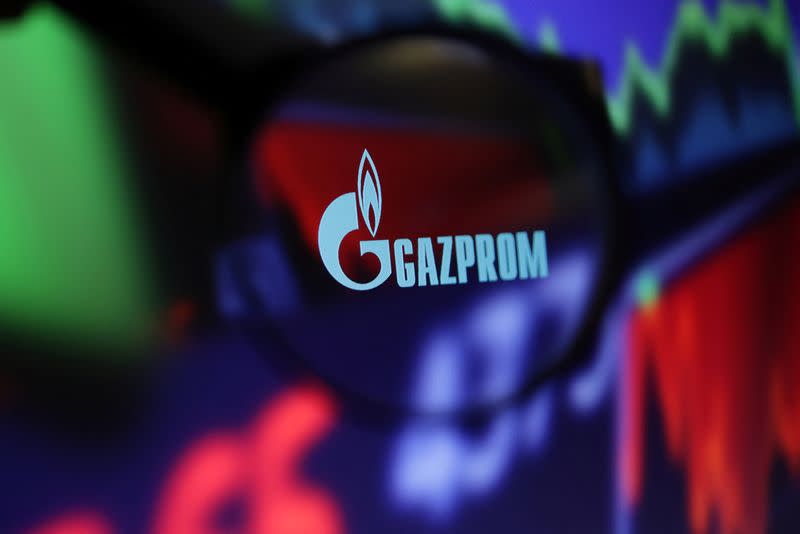Gazprom says Europe set to struggle fill gas storage for next winter

MOSCOW (Reuters) - It will be very difficult for Europe to refill its gas storage to last year's levels after the continent ended the winter heating season with relatively low stockpiles, Russian natural gas giant Gazprom said on Tuesday.
The European Union last year invested heavily in liquefied natural gas (LNG) imports and adopted regulation to boost storage to fend off any shortage after Russian gas supplies to Europe shrank following Moscow's special military operation in Ukraine.
Gazprom said that as of April 16, Europe storage contained 56.6 billion cubic metres (bcm) of gas, down from 58 bcm in the same period of 2020, at the start of COVID-19 pandemic.
In a message on Telegram social media, Gazprom said Europe had been helped by relatively mild weather, which may not be the case next year.
Repeating the filling of storage could become "a non-trivial task" for European companies, Gazprom said.
"This will be very difficult to do, given the politically motivated decisions aimed at refusing to import Russian pipeline gas. The volume of gas available on the European market will be greatly affected by competition for LNG," Gazprom said.
Last year's European imports of Russian pipeline gas were 62 bcm, 60% below the average of the previous five years, European Commission data shows.
This year, Russian deliveries to the EU are expected to fall to 25 bcm, assuming flows via the TurkStream pipeline and through Ukraine are in line with December 2022 volumes, the International Energy Agency (IEA) forecasts.
(Reporting by Vladimir Soldatkin; Editing by David Goodman and Barbara Lewis)

 Yahoo Finance
Yahoo Finance 